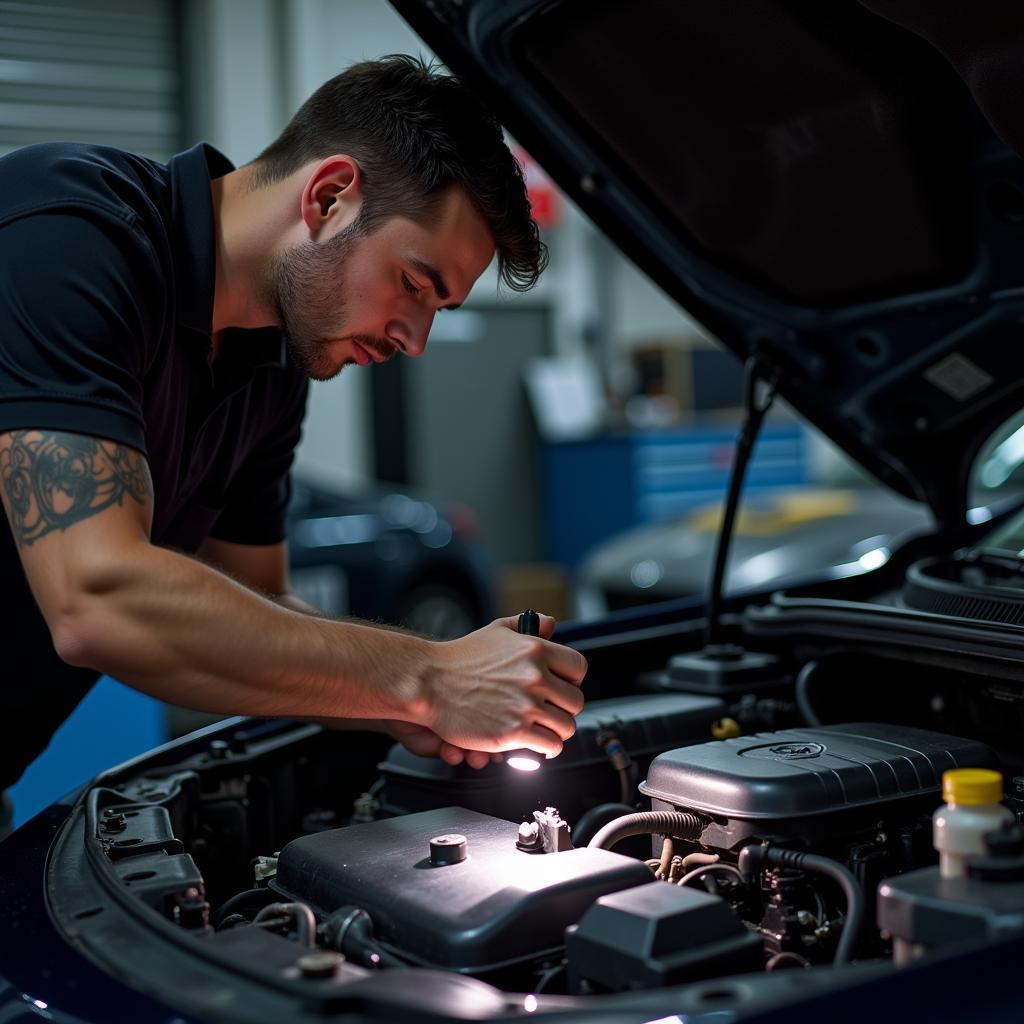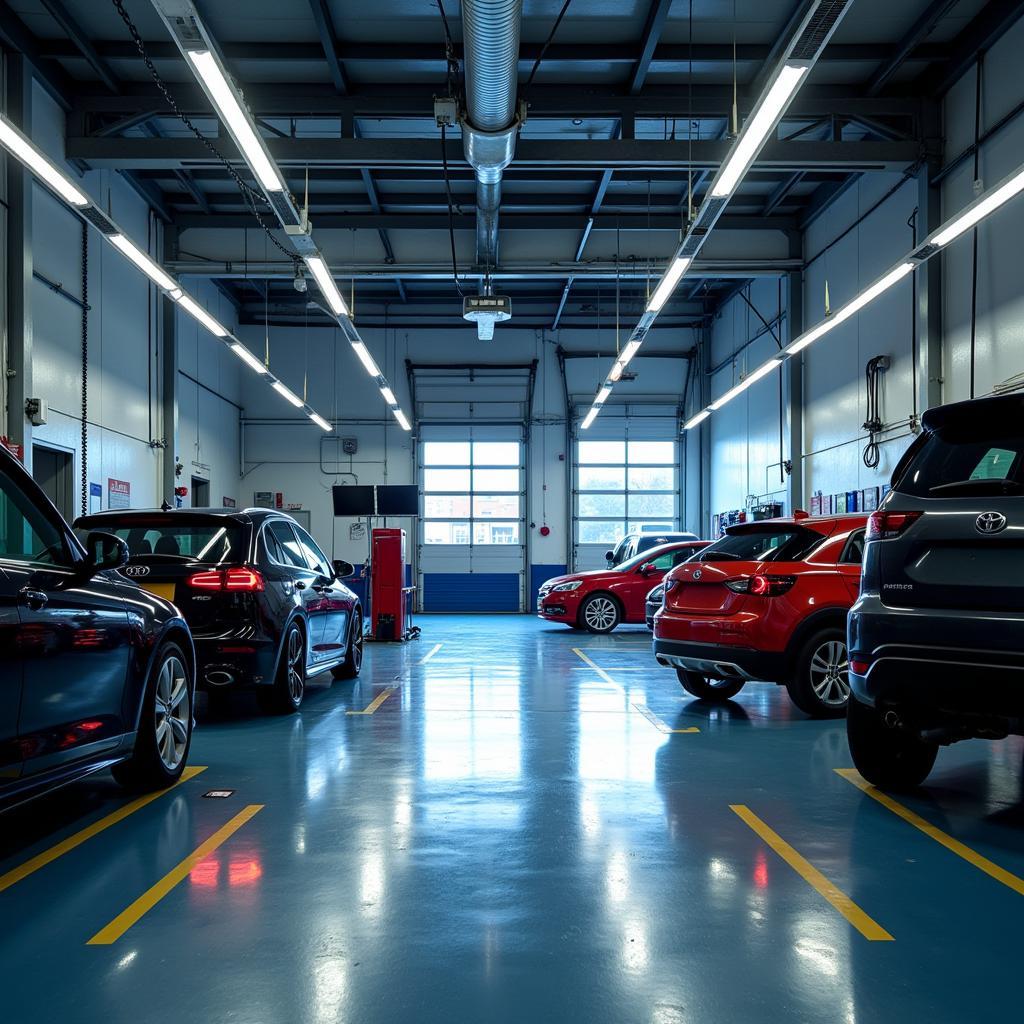What Does a Service on a Car Include?
Owning a car is fantastic, but keeping it running smoothly requires regular maintenance. If you’re asking yourself, “What does a service on a car include?” you’re in the right place. We’ll break down the essentials of car servicing, ensuring you understand exactly what to expect and why it’s crucial for your vehicle’s health and your safety on the road.
Understanding Car Service Intervals
Before diving into the specifics, let’s clarify what we mean by “a service.” Car services aren’t one-size-fits-all. They are categorized into different levels based on mileage or time intervals, with each level covering a progressively more thorough inspection and maintenance checklist. Think of it like this:
- Basic Service: This is your car’s regular check-up, typically recommended every 6 months or 5,000-7,500 miles.
- Full Service: A more comprehensive assessment and maintenance session, usually advised every 12 months or 10,000-12,000 miles.
- Major Service: The most extensive service, tackling significant wear-and-tear components, often recommended every 24 months or 20,000-25,000 miles.
 Car Service Checklist
Car Service Checklist
It’s crucial to consult your car’s owner’s manual for the manufacturer’s recommended service schedule as intervals can vary depending on make, model, and driving conditions.
What Does a Basic Car Service Include?
A basic car service is all about preventative care, ensuring your car continues to run smoothly and identifying minor issues before they escalate. Here’s a general overview of what you can expect:
- Oil and Oil Filter Change: The cornerstone of any basic service. Fresh oil lubricates your engine’s moving parts, reducing friction and wear, while a new filter removes contaminants.
- Fluid Top-Ups: Your mechanic will inspect and top up essential fluids like coolant, brake fluid, power steering fluid, and windshield washer fluid.
- Visual Inspection: A trained technician will visually inspect various components, including brakes, tires (including tread depth and pressure), belts, hoses, lights, and exhaust, looking for signs of wear or damage.
- Air Filter Check/Replacement: The air filter ensures clean air reaches your engine for optimal combustion. It might need cleaning or replacement depending on its condition.
What Does a Full Car Service Include?
Building upon the basic service, a full car service delves deeper, offering a more comprehensive check of your vehicle’s health. Alongside the elements of a basic service, a full service typically includes:
- Spark Plug Check/Replacement: Spark plugs ignite the air-fuel mixture in the engine. Worn-out spark plugs can lead to reduced fuel efficiency and engine performance.
- Battery Test: The battery’s voltage and charging capacity are assessed to ensure it’s in good working order.
- Brake Inspection: A more thorough inspection of the braking system, including checking brake pads, discs, and calipers for wear and tear.
- Suspension Check: The suspension system, responsible for a smooth and comfortable ride, is inspected for any signs of damage or wear to components like shocks and struts.
What Does a Major Car Service Include?
A major car service is the most comprehensive and includes all aspects of a full service, plus additional checks and replacements for components that experience significant wear over time. This often includes:
- Timing Belt/Chain Replacement: The timing belt or chain is crucial for engine timing and a costly repair if it fails, making its replacement at recommended intervals essential.
- Coolant Flush: The old coolant is flushed out, and the cooling system is replenished with fresh coolant to prevent overheating and corrosion.
- Transmission Fluid Change (Automatic Transmission): Similar to engine oil, transmission fluid lubricates the moving parts of your automatic gearbox, ensuring smooth gear changes.
 Mechanic Inspecting Engine
Mechanic Inspecting Engine
Expert Insight:
“Many car owners underestimate the importance of regular car servicing. They wait for something to go wrong, which often leads to more extensive and expensive repairs down the line. Think of servicing as an investment in your car’s longevity and your peace of mind.” — John Miller, Senior Automotive Technician at CarServiceOnline
FAQs about Car Services
Q: How much does a car service cost?
A: The cost varies greatly depending on the service type (basic, full, major), your car’s make and model, location, and the mechanic or garage you choose.
Q: Can I service my car myself?
A: While some basic maintenance tasks can be done at home, it’s generally recommended to leave servicing to qualified professionals, especially for more complex procedures.
Q: What happens if I skip a car service?
A: Skipping services can lead to reduced fuel efficiency, premature wear and tear on components, potential breakdowns, and even compromise your safety on the road.
Q: How do I know if my car needs a service?
A: Besides adhering to the recommended service schedule, be on the lookout for warning signs like unusual noises, warning lights on your dashboard, fluid leaks, or changes in your car’s performance.
Q: Where can I find a reliable car service near me?
A: CarServiceOnline provides a comprehensive directory of trusted and reputable car service providers in your area.
Conclusion
Understanding what a service on a car includes empowers you to make informed decisions about your vehicle’s maintenance. Regular servicing is an investment, not an expense, ensuring your car runs smoothly, efficiently, and safely for years to come. Don’t wait for a problem to arise — stay ahead of the curve with routine car care.

